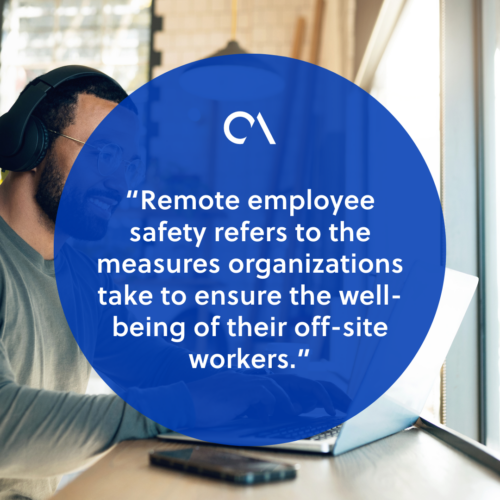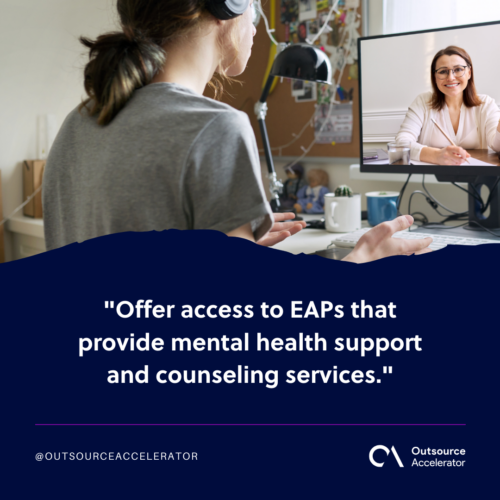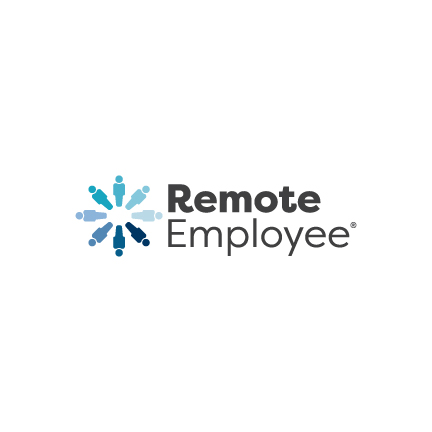The ultimate remote employee safety checklist

Working remotely has become a norm in today’s interconnected world. With technological advancements, countless professionals can now perform their jobs from the comfort of their homes.
A Buffer report revealed that more individuals prefer remote work, with 71% saying they want a fully remote arrangement.
However, that is not to say that working from home does not come with its own risks, such as burnout and physical problems due to ergonomic or environmental issues.
Hence, the safety and well-being of remote employees must never be compromised. Keep reading to learn what goes into a remote employee safety checklist and why you need one.
What is remote employee safety?
Remote employee safety refers to the measures organizations take to ensure the well-being of their off-site workers.
It involves assessing potential risks and implementing guidelines to mitigate them. This includes addressing physical and mental health concerns and creating a safe and secure working environment.
Importance of remote employee safety
Employees who feel safe and protected can focus on their work and deliver the best results. Additionally, a safe work environment reduces the chances of accidents and injuries, thereby minimizing legal liabilities for organizations.
Furthermore, prioritizing employee safety enhances employee retention, as workers are more likely to remain loyal to companies that demonstrate care for their well-being.

Benefits of implementing a remote employee safety checklist
Companies like GitHub are an example of how implementing a remote employee safety checklist can do wonders.
Some things they did included teaching employees about proper data safety and being ready in case of emergencies or disasters.
Since then, their employees have developed peace of mind, which helps them deliver exceptional customer service without worrying about their safety.
Implementing a remote employee safety checklist can bring numerous benefits to both employees and organizations:
- Enhanced productivity. When employees feel secure, they can concentrate on their tasks without distraction.
- Reduced absenteeism. Health and safety incidents are closely tied to absence rates. Implementing measures to prevent injuries or illnesses caused by work contributes to minimizing absenteeism and improving your overall retention rate.
- Improved mental well-being. Working remotely often blurs the line between professional and personal life. A safety checklist offers guidelines for maintaining one’s mental health and well-being.
- Compliance with regulations. Organizations must adhere to various safety regulations, even when employees work remotely. A safety checklist ensures legal compliance and prevents lawsuits.
Things to include in a remote employee safety checklist
A thorough remote employee safety checklist must cover a range of crucial elements, including:
1. Setting up a safe remote workspace
Ergonomic considerations
✔ Appropriate desk and chair setup. Providing remote workers with the right tools is important. Investing in ergonomic furniture promotes good posture and prevents musculoskeletal issues.
✔ Proper lighting and ventilation. Natural light and adequate ventilation contribute to a healthy work environment. Encourage employees to set up their workspace in a well-lit area with good airflow.
Electrical safety
✔ Check power outlets and cords. Regularly inspect electrical outlets and cords for wear and tear.
✔ Prevent electrical hazards. Educate remote workers about the importance of using surge protectors and unplugging devices when not in use to prevent electrical hazards.
Fire safety
✔ Smoke detectors and fire extinguishers. Remind employees to install smoke detectors and have a fire extinguisher within reach. Conduct virtual fire drills to ensure everyone knows the evacuation plan.
✔ Create a fire escape plan. Establish clear procedures for evacuating in case of a fire.
2. Creating a secure digital environment
Network security
✔ Use secure Wi-Fi connections. Emphasize the importance of secure Wi-Fi networks. Encourage using strong passwords for home networks and provide resources on securing routers.
✔ Set up firewalls and antivirus software. Remote employees should install reliable antivirus software and activate firewalls to protect against cyber threats.
Data protection
✔ Secure file storage and backup. Implement secure cloud storage solutions with encryption to safeguard sensitive data. Remember to backup important files to prevent losing data.
✔ Encrypt sensitive data. Encryption is the process of turning data into random, unreadable text that only authorized users can access. Educate employees on encrypting confidential information to add an extra layer of protection against unauthorized users.
Password security
✔ Implement strong password policies. Use complex passwords and enforce regular password updates.
✔ Two-factor authentication. Advocate for the use of two-factor authentication to enhance account security. This provides an additional level of security beyond passwords.
3. Ensuring physical safety
First aid kit and emergency contacts
✔ Basic first aid supplies. Remote workers should have access to basic first aid supplies. Provide guidance on creating a personal first aid kit.
✔ Emergency contact numbers. Compile a list of emergency contacts, including local emergency services and company-specific contacts.
Trip and fall hazards
✔ Clear clutter and maintain a tidy workspace. A tidy workspace reduces the risk of accidents. Remind employees to organize cables and keep their area clutter-free.
✔ Proper cable management. Encourage the use of cable organizers to prevent tripping hazards. This simple step can prevent injuries and maintain a neat workspace.
4. Psychological well-being
Work-life balance
✔ Ensure boundaries between work and personal life. Avoiding burnout is crucial for long-term well-being. Emphasize the importance of delineating work hours and personal time.
✔ Manage stress and burnout. Offer resources for managing stress and mental health. Regular check-ins with managers can help identify signs of burnout.
Communication and support
✔ Regular check-ins with colleagues and managers. Regular communication fosters a sense of belonging. Encourage virtual team meetings and one-on-one check-ins to maintain connections.
✔ Access to employee assistance programs (EAPs). Offer access to EAPs that provide mental health support and counseling services.

5. Training and education
Provide remote work safety training
✔ Identifying potential risks and hazards. Train employees to identify potential risks in their remote work environment.
✔ Educating employees on best safety practices. Conduct regular safety training sessions covering updated digital and physical safety aspects.
Resources and references
✔ Recommended safety websites and guides. Provide a list of reputable safety resources, such as government guidelines on remote work safety and industry-specific recommendations.
✔ Additional reading materials. Cultivate a culture of continuous learning by recommending articles and books on remote work safety.
Tick all the boxes with Remote Employee
The ultimate remote employee safety checklist goes beyond mere compliance — it reflects a commitment to the well-being of your team.
By addressing physical and digital safety concerns, businesses can create an environment where employees feel secure, supported, and empowered to do their best work.
One way to ensure you tick all the boxes on your remote employee safety checklist is by partnering with a trusted BPO provider like Remote Employee.
Remote Employee is ranked 3rd among the top 40 BPO companies in the Philippines to work with. Working with Remote Employee can promote safety for your remote workers by:
- Implementing robust cybersecurity measures
- Ensuring secure data handling
- Protecting sensitive information
A trusted outsourcing provider like us can give you access to comprehensive training programs on cybersecurity best practices for your remote staff, creating a secure virtual work environment.
Visit our website to learn more about how Remote Employee can help you and your workers!







 Independent
Independent




